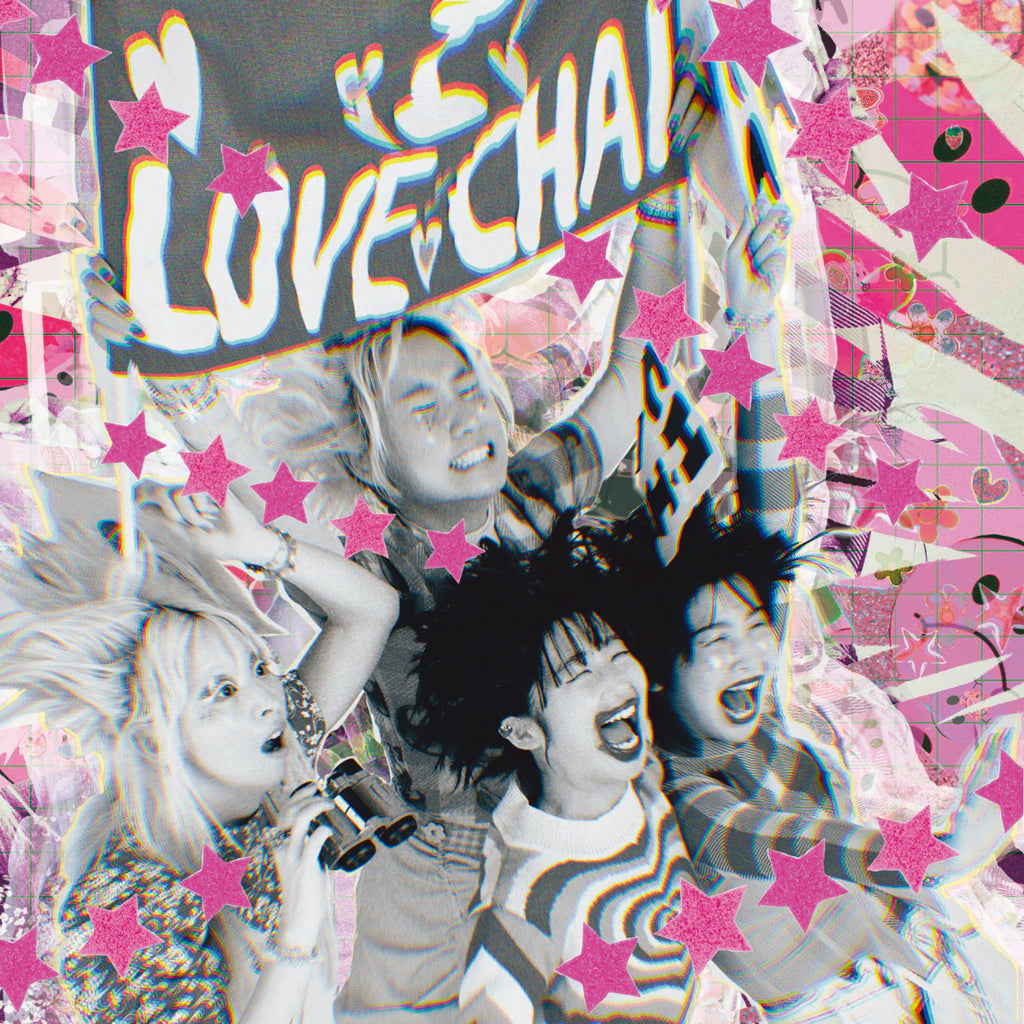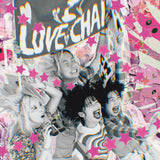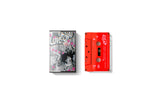The Japanese band CHAI cast a spell on the world in 2017, when they released their debut album, PINK, a collection of songs that introduced us to their singular brand of playful pop. The jubilant and enthusiastically feminist follow-up, PUNK, raked in accolades from the music press and fellow artists alike. That led to WINK, which CHAI made via remote Zoom sessions, a limitation that became a strength since it allowed MANA (lead vocals and keys), KANA (guitar), YUNA (drums), and YUUKI (bassist-lyricist) to collaborate with artists abroad. On WINK, CHAI looked beyond their immediate surroundings, and the confines of home, to create a work that found catharsis in their international community.
On September 22nd, 2023, CHAI will release their dazzling self-titled fourth album worldwide from Sub Pop, and in Japan & Asia through Sony Music.
Unlike WINK, this self-titled collection of songs finds CHAI returning to their roots, drawing inspiration from their Japanese cultural heritage and the music that raised them. “Everything reflected in the lyrics expresses our experience as Japanese women,” MANA says, explaining why they chose to self-title this album. CHAI’s ethos is one of inclusion, and lead single “We The Female!” – recorded live off the floor to honor the band’s riotous performances – beckons all listeners into the mission. “We are human and were born as female, but we have both female and male aspects in each of our souls, each with our own sense of balance,” CHAI said in an accompanying statement. “We can’t just label ourselves into clear-cut, simple categories anymore! I’m not anyone else but just ‘me,’ and you are no one else but just ‘you.’ This song celebrates that with a roar!”
A nostalgic look backward was, in part, circumstantial. When pandemic restrictions were lifted, CHAI returned to the road, bringing their exuberant live show to new cities, where the experience of performing for enormous crowds in cities like Santiago, Buenos Aires, and São Paulo made them realize they had truly unlocked a global audience. Since the band’s inception in 2011, CHAI have espoused a philosophy they call Neo Kawaii, in reference to the Japanese word for cute, a label typically bestowed upon women who maintain societally prescribed beauty standards. As young women, CHAI felt that any deviation from what culture considered kawaii was discouraged, and so Neo Kawaii emerged as a rallying cry against those oppressive standards. “Neo Kawaii is about reclaiming self-esteem,” MANA says. On the ESG-inspired single “NEO KAWAII, K?” MANA sings: “This is just my body, not a trendy body/ Gonna be loved, baby!/ Just as I am.”
Realizing that message applied to people outside of Japan, who screamed in delight when MANA shouted “NEO KAWAII!” into the mic, made CHAI consider what other facets of their upbringing might resonate with audiences outside of their home country. Unlike previous albums, CHAI wrote their self-titled record on the road, finding time to record in the days between shows at Stones Throw Studio in LA, Ometusco Sound Machine in Mexico City, and Grand Street in New York. “It was actually a chill and relaxed process, because we were playing shows every day and were really in the music,” MANA says. One song on the album, “Driving22,” directly draws from long days spent navigating the highways of foreign cities until the band arrives at their destination. The YUUKI-penned lyrics distill the excitement of touring over a squelching rhythm section funkier than anything we’ve heard from CHAI before: “All skin colors gathering/ Imperfect sing-along (That's so nice).”
Each CHAI album borrows aesthetic inspiration from specific musical movements, and on this album, the quartet wanted to make direct comparisons to city pop, a Tokyo-born sound popularized in the ‘70s and ‘80s. City pop was a Japanese take on Western lounge music, borrowing from jazz, boogie, funk, and yacht rock to create a sound that straddled two cultures. Only recently has city pop become a pop culture phenomenon in the U.S. thanks in part to TikTok and YouTube exhuming songs by artists like Tatsuro Yamashita, but for CHAI, city pop was just the music of childhood. They tapped previous collaborator Ryu Takahashi to produce, who shared their love of city pop and eurobeat, as well as the melodies of J-pop artists like Maria Takeuchi, which also contributed to the CHAI moodboard. “They wanted to dig into their Japanese identity, not in a traditional sense, but in this filtered Western way,” Takahashi says.
In writing sessions, the members of CHAI listed words immediately associated with Japan, resulting in songs with titles like “MATCHA” and “KARAOKE.” Some terms are less immediate, but no less authentic to the country’s cultural heritage. For example, single “LIKE, I NEED” mentions the “selfie,” a now-universal practice popularized by both the Japanese photographer Hiromix in the 1990s and the hugely popular photo booths found in communal places across the country. On “PARA PARA,” CHAI memorialize the bafflingly popular two-step dance trend that overtook Japan that same decade. “There’s not a deep meaning to that song, it’s really just about the dance. We’re saying: ‘as long as you have the two-step dance, you can do anything,’” MANA says. Others, like the aforementioned “MATCHA,” carry metaphorical weight. “The process of making matcha requires a lot of focus and concentration, it’s a very meditative process. Making it is similar to the process of self-reflection, looking deeply at your emotions and trying to understand yourself better.” The song emerged from a shared obsession with Tyler, the Creator, who CHAI and Takahashi mutually adore for his expansive bridge sections that give each song a clear personality.
The members of CHAI have always been reluctant to share their ages, but on this album, they declare that they’re “From 1992,” though a glance at some of their references, and the instrumentation on the album might have clued listeners in. Working in studios with vast collections of gear allowed them to experiment with aesthetics as-yet-unheard on a CHAI album. For example, at Stones Throw Studio, CHAI recorded “GAME” with the sole intention of writing something listeners will recognize as new wave, riding on a house synth line and minimalist production that recalls the eurobeat influences most recently associated with Robyn’s Honey. “GAME” might be the perfect distillation of CHAI’s ethic, as it urges listeners to keep moving through this life with joy and passion. Per MANA: “It’s not about winning or losing as competition, but about what you need to do, personally, to feel you’ve won.”









